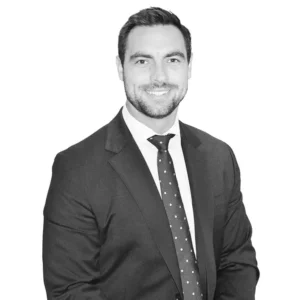Missing the Big Picture
Let’s consider a few of these common adages:
“Pennywise and pound foolish.”
“Stepping over dollars to pick up dimes”
“Can’t see the forest for the trees.”
They each have their own meaning and appropriate application, but they all carry this theme of someone missing the big picture. We have so many other proverbs centering around this same concept because this is such a common stumbling block for humans.
In personal finance, I often see this stumbling block surface around the topic of taxes. Commonly, taxes are the greatest expense an investor will pay, yet taxes are allotted very little attention when talking portfolio management. The key here though is not that there is a magic-tax-pill, but rather that tax efficiency depends on incremental planning that collectively can make a meaningful difference over time.
This AND That
Returns are important to investors, but really after-tax returns are what deserve our greatest attention. Yet, I do realize that for many, an analysis of owning this soda company versus that soda company can be more intellectually stimulating than a conversation about how to reduce your tax bill. I am not suggesting that we should decide between security analysis and tax planning. We are not dealing with a “this or that” situation but rather a true need for “this and that.” Security selection, asset allocation, and tax planning all deserve our attention and care.
Again, everyone is looking for that magic-bullet-best-kept-secret-rarely-implemented-change-my-financial-life-tax-strategy, but I have some great advice for you – stop searching for unicorns! Take advantage of the low-hanging fruit that incremental tax planning, which in the aggregate can make a big difference.
Easy Examples
In the name of practical applications, let’s review some of those potential low-hanging fruit tactics. Note I say “potential” because what may be meaningful to one person’s tax situation could be insignificant or negative for another. Financial planning is a tailored art, and it will always be customized to the investor the planning is centered around.
Now, here are some of those ideas and tactics to ponder…
Municipal Bonds
Many of the clients we serve find themselves in the highest federal tax bracket and living in high-tax states (e.g., California and New York). A lot of these clients have a need and desire to be strategic about how they manage their “safe money.” This is the part of their allocation pie that they want to earn interest on with limited volatility or downside risk.
The natural candidate here is often a money market account, CD, or government treasury. These solutions make sense when one isn’t accounting for taxes. When we factor in what after-tax returns look like, we learn that in today’s environment, one would have to earn over 8% on a CD or over 6% on a treasury to produce the same after-tax outcome as a high-quality municipal bond. Again, these calculations I am referencing are run on an individual in the highest bracket and can easily be customized/calculated for your own particulars. Also, I hope it goes without sayings that these investments – money market, CD, government treasury, municipal bond – are not identical. One needs to measure and understand the liquidity differences and assumed volatility to set the right expectations here. This is all part of the planning process.
Municipal bonds can be low-hanging fruit.
Tax Loss Harvesting
A few years back, I had a client staring down the barrel of quite a heavy tax burden due to some unforeseen gains. The client was looking everywhere for an offset and some relief as they were approaching the end of the year. I remembered they had a significant portfolio that was self-directed outside of what I was assisting on, so I asked for an export of the current positions in that portfolio. Sure enough, I identified over $100,000 of unrealized losses that could be harvested to help offset some of those surprise gains.
The losses were “on the books,” but they were yet to be booked (realized). To me, this was an obvious and simple solution, but I also understand that I, as a planner, Sherlock-Holmes with a different lens than your average investor.
Tax loss harvesting can be low-hanging fruit.
Charitable Planning
I am always amazed by how charitable and generous our clients are. Whether it is in conversation or in reviewing a tax return, I get a front-row seat to view the dollars and cents that are allotted to charity.
This same tax return review can also reveal a missed opportunity. We might see a client realizing capital gains and gifting cash in the same tax year. To me, this is very inefficient. The tax code allows us to gift securities and property to charities. If we’ve held an investment longer than a year, we can donate the position to our charity of choice, take the market value as a deduction, and avoid paying the capital gain. Barring any nuance here around deduction limitations, gifting cash over highly appreciated securities is typically a subpar decision.
Gifting highly appreciated assets can be low-hanging fruit.
Roth Conversions
I’ve dedicated an entire article to this topic, so I’d encourage you to review it (Pizza Dough and Roth Conversions). I’ll keep it simple here – if you’ve deferred taxes via a retirement plan, then one day in the future, you (or your heirs) will have to pay those taxes. You hope that you penned a good deal with Uncle Sam and that your future “sharing arrangement” (effective tax rate) will be more favorable than when you decided to defer.
Here’s the problem, in your elder years, when you’ve probably already mapped out a good rhythm of spending and where to draw your distributions from, the IRS will come knocking, and they will use RMDs (Required Minimum Distributions) to begin to extract those taxes owed. Roth conversions can be a way for you to control those tax rates versus having the IRS via an RMD control them [tax rates] for you.
Again, highly customized and tailored to the individual and work we do with clients on a regular basis here at The Bahnsen Group.
Roth conversions can be low-hanging fruit.
Tax Deferral and/or Tax-Free Growth Strategies
The tax code has a long list of very simple tax strategies. Everything from Health Savings Accounts to 401(k) plans to 529 plans. Many of these strategies are your basic Financial Planning 101 tactics, yet I can’t tell you how often I see these opportunities being passed up or not maximized.
This is the first place you should go when mapping out your money plans. Start to ask yourself the simple questions: Have I maxed out my 401(k) plan? Does the projected growth of my 529 plan match the future expected education expenses? Am I making the maximum contributions to my Health Savings Plan? Should I be making back-door Roth contributions? Again, no rocket science here, but just simply taking advantage of what is available to you.
Tax-deferred accounts or tax-free growth accounts can be low-hanging fruit.
Life Insurance
We will save the most complex for last – it just seems appropriate. This a topic that could have a whole series here on TOM dedicated to it, yet for now, I will just introduce the concept.
Often, when you’ve exhausted every other piece of low-hanging tax fruit, you are asking, what else? Life insurance can present an opportunity. Whether this is using a policy to fund a future estate tax bill or even a vehicle like Private Placement Life Insurance to shelter investments from current taxes and potentially create a tax avoidance strategy for your heirs.
Again, much more to be discussed here, but as you might assume that I’d say…
Life Insurance can be low-hanging fruit.
And the List Goes On…
This is far from an exhaustive list; we just scratched the surface. As I said, for most, taxes are the largest bill/expense of the year. And, as they say, a penny saved is a penny earned. So, if you are interested in growing your earnings, maybe you ought to first be looking for some tax savings. You’ve got a good launch point from this thread to start your scavenger hunt.
Just remember, personal finance is personal. I know I say that a lot, but we all need that reminder. Your financial plan reflects – your preferences, your resources, and your tax situation. Therefore, you need to craft a customized plan around tax efficiency. You need a list of opportunities, you need to prioritize that list, and then, for awareness, determine/define the savings that were generated from the tax planning that you executed.
Again, planning isn’t a game of this or that but rather an approach that accounts for this and that. Don’t leave tax planning by the wayside – embrace it and maximize the opportunities that are available to you.
Most importantly, start with the low-hanging fruit.





